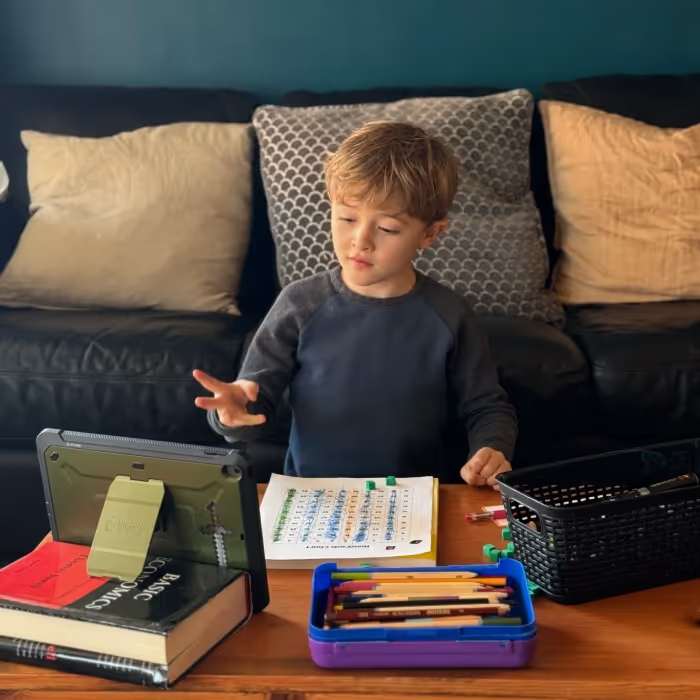What is Open Education?
Open education is a personalized approach to education where families design learning around the child — combining resources from schools, online classes, mentors, and real-world experiences.
%20(2).jpg)
What is Open Education?
Education That Adapts to Your Child—Not the Other Way Around.
%20(1080%20x%20500%20px)%20(2).jpg)
The Future of Education Is Open
No child is standard. Their education shouldn’t be either.
For a century, school was built for efficiency, not individuality.
Open Education is a personalized approach to learning where families take back ownership, and design a learning path that fits the child’s strengths, interests, and pace.
Today, families are rewriting the rules. Combining co-ops, curricula, classes (in-person and online), tutors, and real-world experiences to build something better.


Why Open Education Matters
We’ve Personalized Everything—Except Education
For over a hundred years, education followed one model: bell schedules, age groups, and standardized tests.
But the world has changed.
We work remotely, learn on demand, build careers from laptops and kitchen tables. We’ve personalized nearly every aspect of our lives except the education system, which never caught up.
It's Already Happening
The walls defining "education" are dissolving. Families everywhere are unbundling the traditional model and designing custom combinations.
It’s not public or private. Not homeschool or online. Not one way or the other.
Open education means:
✅ Take what works from anywhere.
✅ Leave what doesn’t.
✅ Build a learning plan that fits your child.
It’s education designed around the learner, not the system.
Here is what an Open Education might look like for a student:
🏐 Play sports at a local public school
🧮 Take math online through Khan Academy
🧪 Join a weekly science co-op
🧑🏫 Learn history with a private tutor
💻 Take an Outschool class on coding Minecraft mods
.jpg)
We Wrote the #1 Bestselling Book On It
In Open Education, Matt Bowman and Isaac Morehouse explore how families are moving beyond old labels—public, private, homeschool, virtual—to design an education that truly fits. It’s an approach that doesn’t swear loyalty to a single philosophy, but instead blends the best of everything to meet the specific needs of each child, season by season.
Get the #1 Bestselling book "Open Education" now.
How Open Education Works
Open(Ed) Method
The concept of personalization can feel overwhelming. OpenEd provides a framework that helps families transform the philosophical principles of Open Education into a practical learning plan.
Here is how thousands of families are already building their unique blend of learning:
Discover ->
Find what lights your child up—their innate interests, learning styles, and unique pace.
Design ->
Mix and match the best resources, schedules, and methods available.
Support ->
Access educational resources, guidance, approved reimbursements, and community activities through OpenEd.
Connect ->
Join a network of families reimagining education together.
Thrive
Watch your child grow with confidence, joy, and a lifelong love of learning.
Core Principles of an Open Education
What We Believe
These principles of open education guide everything we do. Open education isn’t about rejecting the system. It’s about reclaiming ownership because the best education is the one your child can actually thrive in.
Education must serve the child, not the system.
Parents are the primary architects of their child's education.
The world is the classroom.
Curiosity is the engine of learning.
A joyful education is a better education.

Potential Pathways for Families
These aren't rigid tracks—they're starting points for exploration.
(Most families blend elements from several.)
.webp)



.jpg)

.jpg)
.jpg)
.jpg)
.jpg)
.jpg)
.jpg)
.jpg)
.jpg)
.jpg)